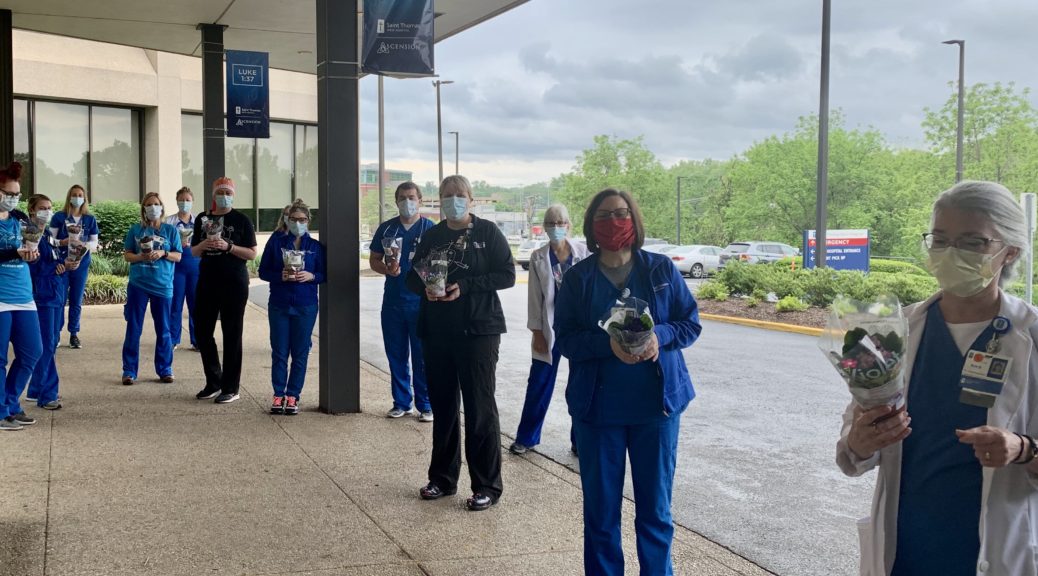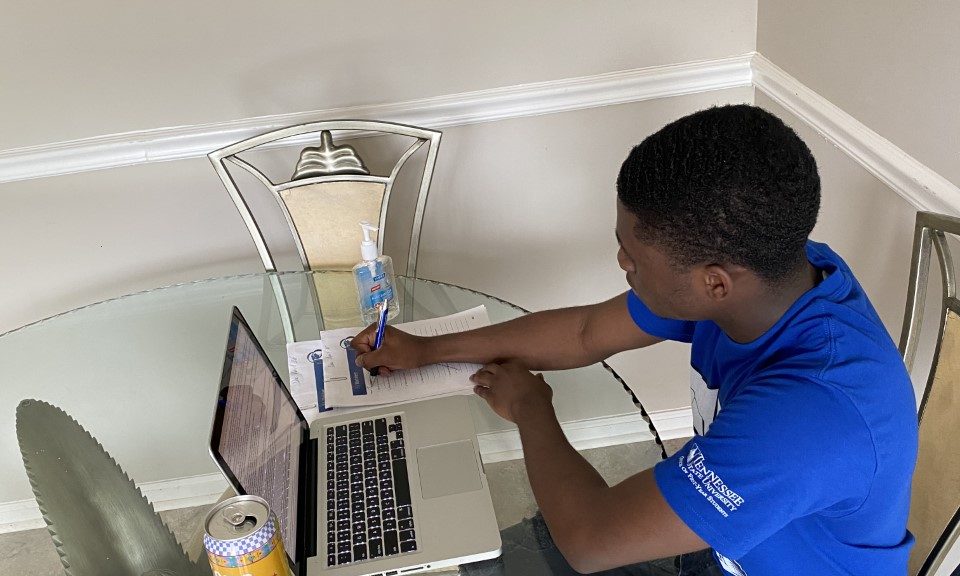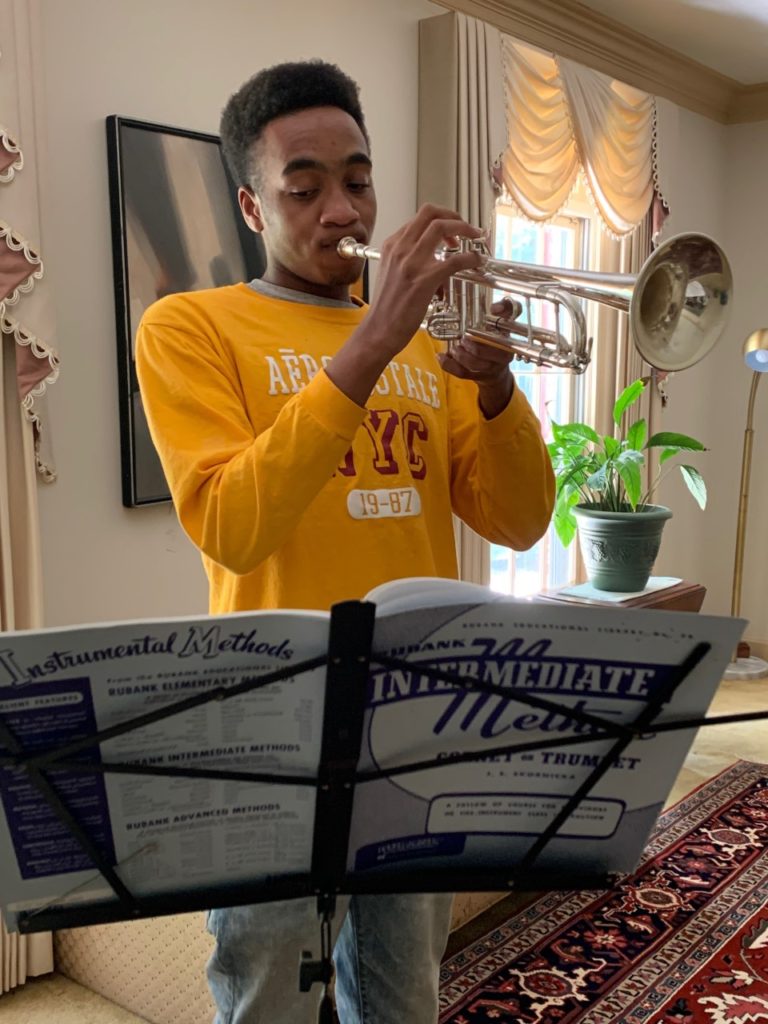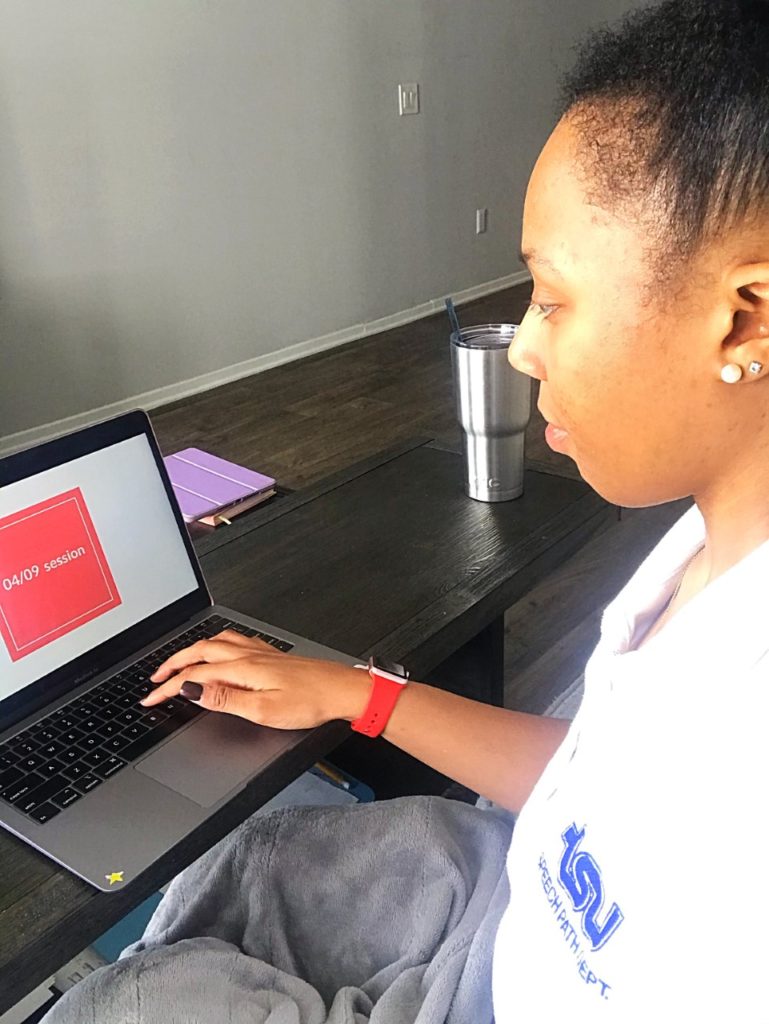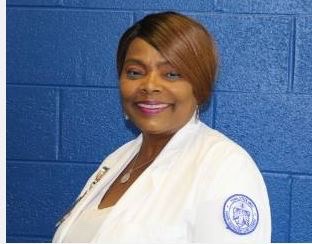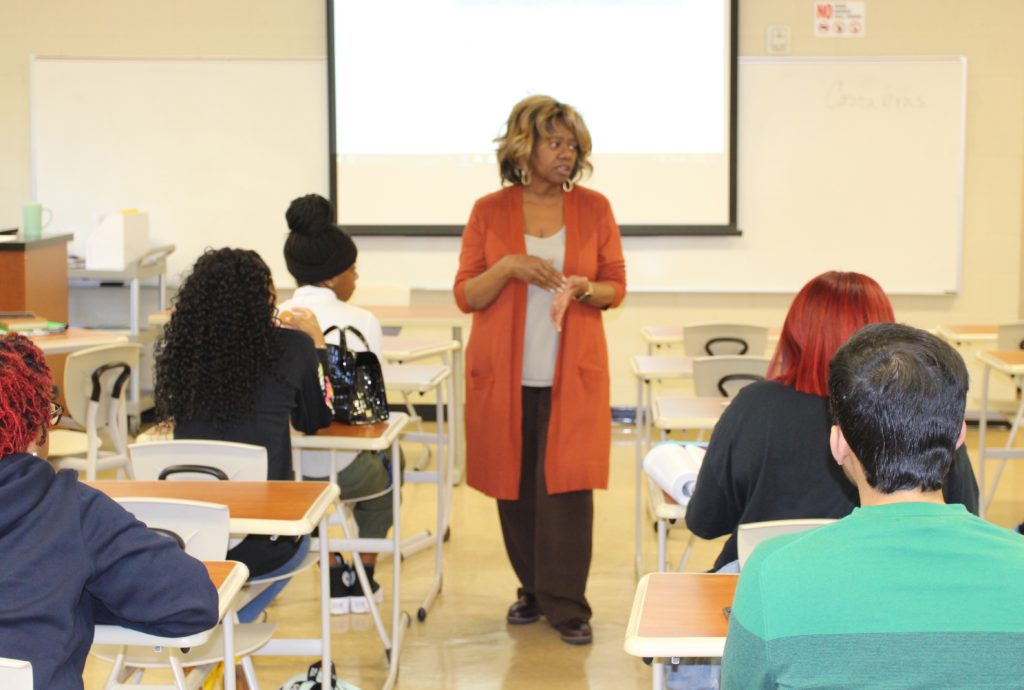NASHVILLE, Tenn. (TSU News Service) – Tennessee State University recently showed its appreciation for frontline workers in the fight against the COVID-19 pandemic by gifting more than 2,500 potted African Violet plants to healthcare workers at several hospitals, clinics and other facilities in the Nashville metro area.
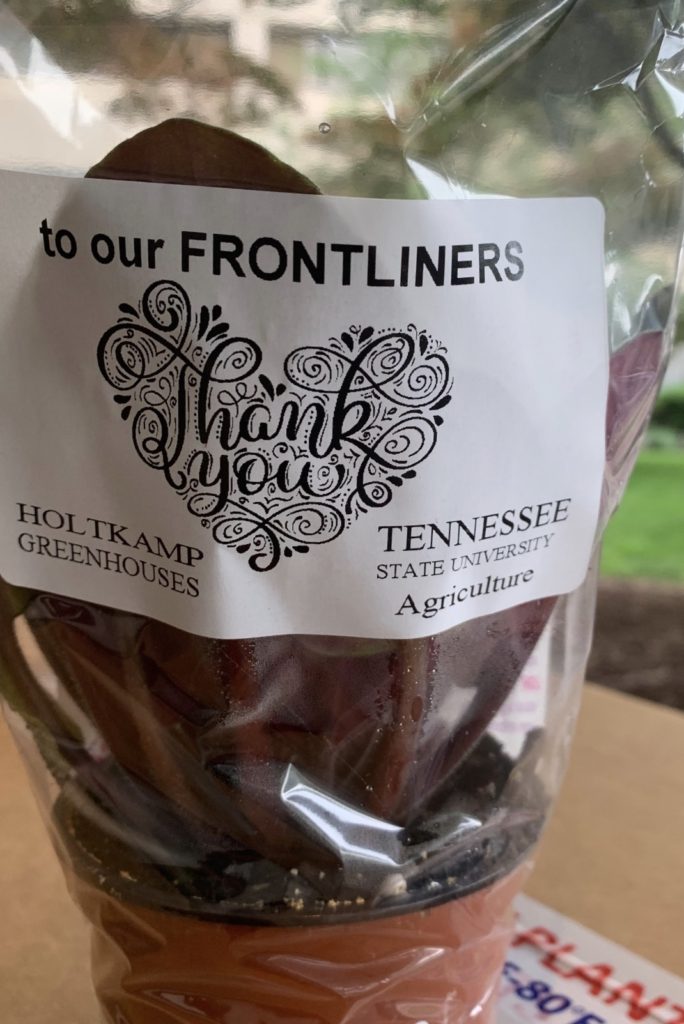
Representing TSU President Glenda Glover, the Dean of the College of Agriculture, Dr. Chandra Reddy, led a group of university officials and staff to deliver the plants to doctors, nurses and other healthcare workers at Ascension Saint Thomas West, Select Specialty Hospital, Nashville General Hospital, Matthew Walker Comprehensive Health Clinic, and Vanderbilt University Medical Center.
The act of kindness was in recognition of National Nurses Week, May 6-12.
Each plant, decorated in a see-through shimmering plastic wrap, carried an inscription that said, “Thank you for being on the frontline for all of us.” They were donated through a partnership with Optimara, a horticulture company in Nashville.
“We just want to say thank you to nurses, doctors, medical technicians, and other hospital workers for risking their lives to save COVID-19 patients and the community,” Reddy said, as dozens of nurses, each observing required social distance, lined up at the main entrance at St. Thomas Went to receive a plant.
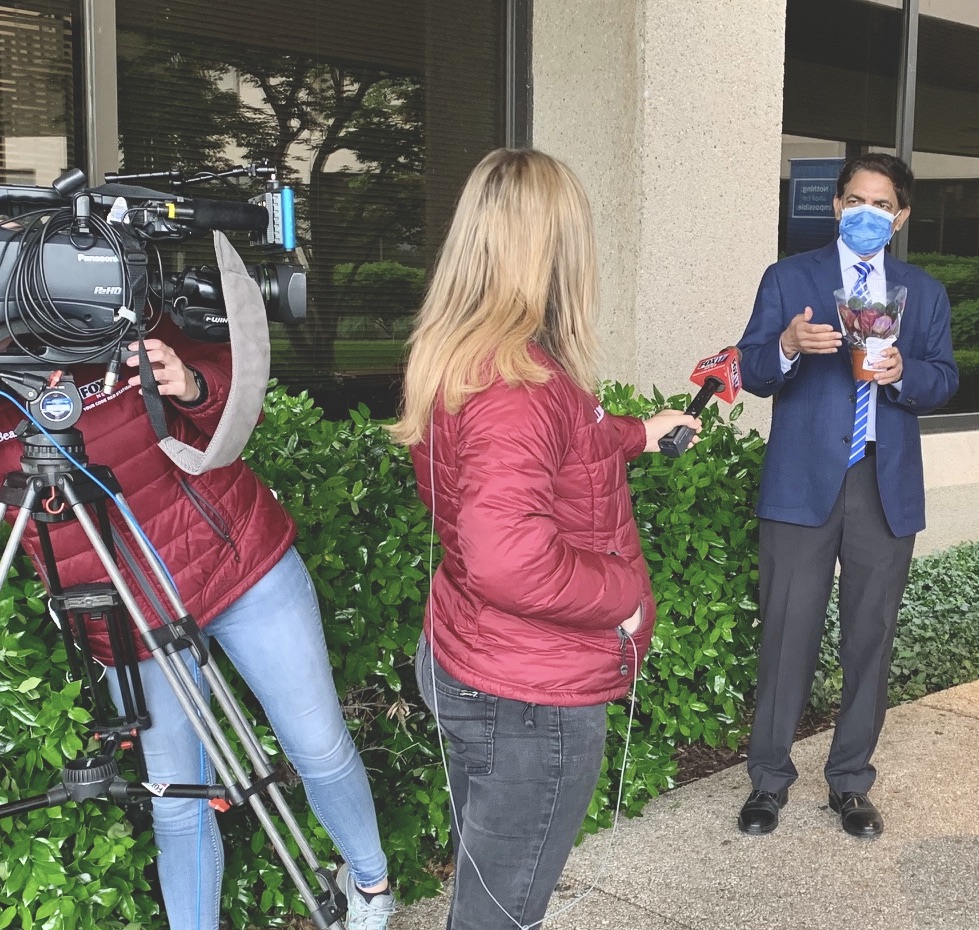
“The African violet plant we are gifting is just a symbol of freshness and hope going forward in our fight against this pandemic.”
Samantha Straton, Chief Nursing Officer at Ascension Saint Thomas West, who received the TSU representatives, thanked the university and said the hospital staff was grateful for the gift.
“This is really meaningful for our frontline caregivers who have been working so hard through the COVID-19 pandemic, and it happens to be Nurses Week,” Straton said. “This is a great way to express appreciation for the hard work of all our nurses and frontline caregivers. We really value our relationship with TSU. We often have clinical students here at Ascension Saint Thomas West as well as some of our other facilities. It is a great partnership and we really just want to say thank you.”
The Director of the BSN program at TSU, Dr. Pinky Noble-Britton, was among those representing the university. Like Straton, Noble-Britton highlighted the “outstanding” partnership TSU has with medical facilities in Nashville.
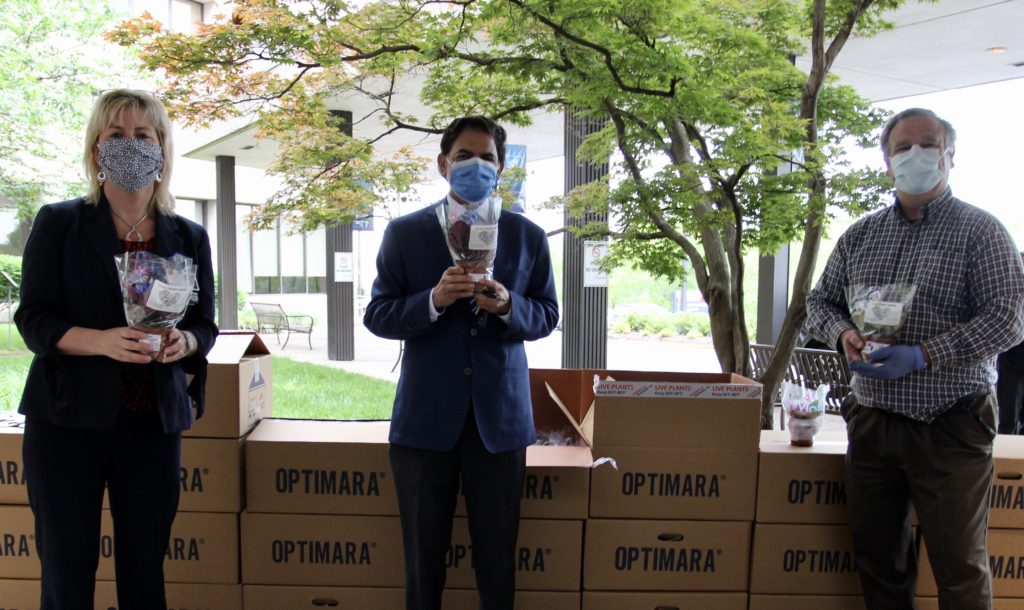
“As a nurse and an educator, it’s heartwarming to see the community support, especially for the men and women on the frontlines providing care during this pandemic,” said Noble-Britton, who is also associate professor of nursing.
“We have a great nursing program and want to also thank St. Thomas West and all of the other hospitals and clinics, as well as Optimara for being such focused community partners with us.”
Reinhold Holtkamp, Sr., president of Optimara, said his company and TSU have had a long relationship in many areas.
“We have collaborated together for many years with the College of Agriculture, and they have given us a lot of support,” Holtkamp said. “So, when we had the opportunity to work together on this sign of friendship for our frontline workers together, we immediately ceased that moment.”
TSU is currently accepting applications for the traditional BSN program. For information on the program, visit http://www.tnstate.edu/nursing/bachelor.aspx
For information on the TSU College of Agriculture, visit http://www.tnstate.edu/agriculture/
Department of Media Relations
Tennessee State University
3500 John Merritt Boulevard
Nashville, Tennessee 37209
615.963.5331
About Tennessee State University
With more than 8,000 students, Tennessee State University is Nashville’s only public university, and is a comprehensive, urban, co-educational, land-grant university offering 38 bachelor’s degree programs, 24 master’s degree programs and seven doctoral degrees. TSU has earned a top 20 ranking for Historically Black Colleges and Universities according to U.S. News and World Report, and rated as one of the top universities in the country by Washington Monthly for social mobility, research and community service. Founded in 1912, Tennessee State University celebrated 100 years in Nashville during 2012. Visit the University online at tnstate.edu.
